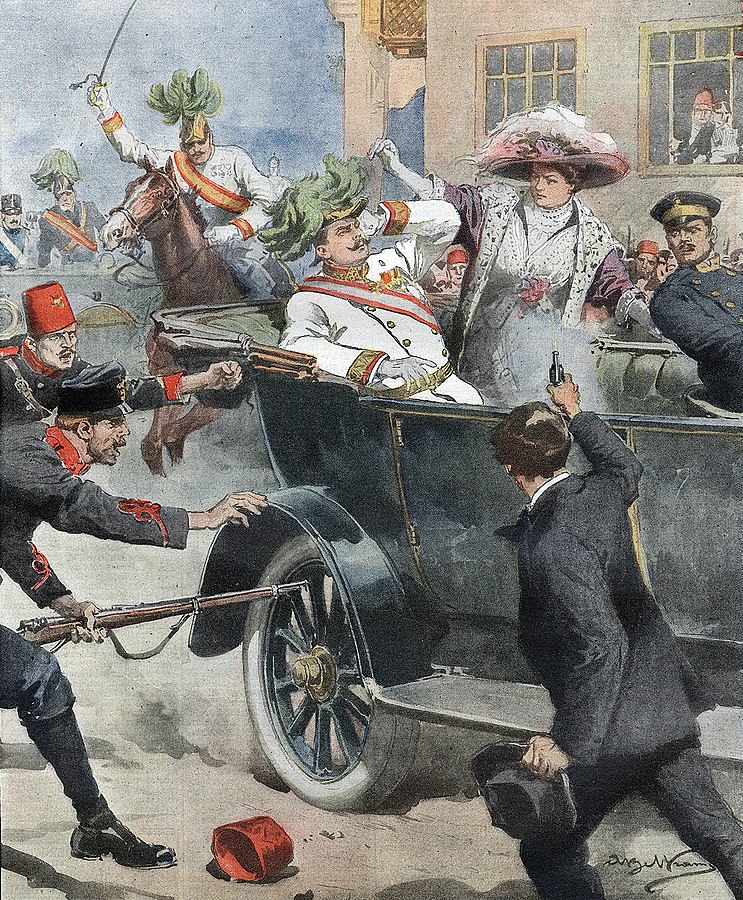 June 28th, 1914. Archduke Franz Ferdinand of Austria, heir presumptive to the Austro-Hungarian throne, and Franz Ferdinand’s wife Sophie, Duchess of Hohenberg, are assassinated in Sarajevo.
June 28th, 1914. Archduke Franz Ferdinand of Austria, heir presumptive to the Austro-Hungarian throne, and Franz Ferdinand’s wife Sophie, Duchess of Hohenberg, are assassinated in Sarajevo.
The assassination is carried out by Mlada Bosna – a Bosnian terrorist organization, created, directed, armed and financed by the Black Hand (a terrorist Serbian organization).
The Black Hand was created and led by Colonel Dragutin Dmitrijevic (“Apis”) who already committed an assassination of a royal couple – Serbian king and queen in 1903. The Sarajevo assassination was also organized, financed and coordinated by the Black Hand. The ultimate objective of the latter was to break off Austria-Hungary’s South Slav provinces so they could be subsequently annexed into a Greater Serbia (Yugoslavia).
However, the Black Hand was itself but a pawn in a far bigger game planned and initiated by the Russian military intelligence and a Russian “party of war” led by the foreign minister Dmitry Sazonov.
The primary objective of this party was to destroy Austro-Hungarian Empire and to make Russia a dominant force in Eastern Europe. Consequently, the actual leaders of the plot that led to the Sarajevo assassination were Dragutin Dmitrijevic and Nicholas Hartwig – the Russian ambassador in Belgrade (two real “shadow” rulers of Serbia).
To break up the Austro-Hungarian Empire, Russia and Serbia had to start a war with the former. Destruction of the Austro-Hungarian Empire was unacceptable to Germany – without the Austrian ally it was inevitably “the next on the menu”. Consequently, the war with Austria automatically meant war with Germany as well.
Russian and Serbian plans were tacitly (and implicitly) supported by France that needed the war with Germany to get back Alsace and Lorraine (annexed by victorious German Empire in 1871).
France also wanted to radically weaken Germany – and thus to become a dominant force in Western Europe. Consequently, the ultimate (albeit implicit and very much unofficial) objective of Russian-French military alliance was to divide Europe between these two great powers – with France dominating the West and Russia dominating the East. Which automatically made war between France and Germany inevitable – and very much desired by the former.
Therefore, Russia planned and executed (using Serbian and Bosnian terrorists as its pawns) the Sarajevo assassination plot with but one objective in mind – ignite an all-European war. Which, indeed, was ignited by the “Sarajevo bullets”.
Hence, this assassination made the Great War inevitable and the three culprits responsible for this horrendous disaster are Russia, Serbia and France (roughly in that order, although it is quite possible that the “Serbian tail” was wagging the “Russian dog”).
August 1914. Germany declares war on Russia and France… or so it seems at the first glance.
After it became obvious that the Sarajevo assassination was carried out by Serbian nationals, on July 23rd, Austria-Hungary issued an ultimatum to Serbia.
The latter accepted all Austrian demands… with the exception of just one that demanded investigation of the plot by the Austrian police. For an obvious reason – any impartial investigation would have uncovered the undeniable fact that the assassination was ordered by the Serbian government.
Which automatically meant war with Austria (imagine what the USA would have done had it discovered that the Mexican government had ordered the assassination of the Vice-President of the USA and his wife). Which began on July 28th, 1914 with the Austrian army and Navy starting to shell Belgrade.
On the same day, Russia started partial mobilization (which made no sense whatsoever). Recognizing its mistake, two days later – on July 30th, the Russian Emperor Nicholas II announced the full mobilization of the Russian armed forces.
Which, according to the international law, was a de-facto declaration of war on Austro-Hungarian Empire and Germany. Consequently, in reality Russia declared war on Germany and Austro-Hungary, not the other way around.
The next day (on July 31st, 1914) Austria-Hungary and Germany announce full mobilization of their armed forces as well, thus de-facto acknowledging the fact that they were at war with the Russian Empire.
However, the German government made a last-ditch (and a totally hopeless) attempt to avoid the war by demanding that Russia cancels its full mobilization within twelve hours.
It was all in vain – Russian leaders wanted the war so German demand was simply ignored. To grab the initiative in the inevitable conflict (always a smart thing to do) Germany declared war on Russia on August 1st with Austria-Hungary following suit five days later – on August 6th.
France (predictably) ordered full mobilization in support of Russia on the next day after Germany declared war on Russia – on August 2nd. Which means that de-facto France declared war on Germany, not the other way around (the general mobilization is irreversible and for all and every practical purposes means war).
Recognizing that it was de-facto at war with France, Germany demanded free passage through Belgium, an essential element in achieving a quick victory over the latter. When this demand was (predictably) refused, on the next day the German Army invaded Belgium anyway. On the same Germany declared war on France.
Fearing (correctly) that without its support (especially the one from the mighty Royal Navy) France will lose the war and Germany will become the dominant power in continental Europe (something the His Majesty’s government was determined to prevent at all costs), on August 4th Britain declared war on Germany (formally in compliance with its obligations under the 1839 Treaty of London with Belgium). On August 12th, Britain and France declared war on Austria-Hungary (just to make the whole thing official).
Given the fact that both Britain and France were gigantic colonial empires (and that Great Britain was the head of the de-facto British Commonwealth which included Canada and Australia), what was essentially the war between two neighboring nations – Austro-Hungarian Empire and the Kingdom of Serbia (the latter being very much a terrorist state) – in a matter of a few days was transformed into the genuine World War.
De-facto ignited and started not by Germany and Austro-Hungary (who were victims, not culprits, prey, not predators), but by Serbia, Russia and France – the real predators and culprits and the ones responsible for the outbreak of the Great War.
August 1914. Adolf Hitler enlists in the Bavarian (i.e. German) Army. Obviously, Hitler was not aware of all intricate details of the plot that led to the Sarajevo assassination and to the outbreak of the Great War.
However, he did understand (or at least feel) that for the German Empire (the “Second Reich”) it was a genuinely existential war – that losing the Great War would have meant the end of Germany as he knew it. As it turned out four years later, he was one hundred percent correct in his assessment and predictions.
Adolf Hitler did not care a rat’s ass (pardon my French) about the Austrian-Hungarian Empire (he knew it was doomed anyway – war or no war). However, he cared very much about his beloved Germany of which he was a genuine, committed and passionate patriot.
Adolf Hitler was not perfect (to put it mildly) – but, unlike most politicians, he always walked what he talked and practiced what he preached. He knew that in the times of war (especially the existential war) his place was in the trenches.
So he overcame two practically impossible obstacles (he was not a German citizen and he was officially declared unfit for military service) and enlisted in the 1st Company of the Bavarian Reserve Infantry Regiment 16 (the famous “List Regiment”).
The “official” version of his success is that Hitler almost certainly was enlisted through an error on the part of the German military. Later (during Hitler’s trial after the failed Beer hall Putsch), the military authorities could not explain why he was not deported back to Austria in 1914 after he failed his physical exam for the Austrian Army; they concluded that the matter of Hitler’s citizenship was simply not raised, thus he was allowed to enter the Bavarian Army.
I thinks that this explanation is bunk (pardon my French again). In reality, Adolf Hitler either convinced the appropriate authorities that he was a patriot of Germany, not Austria – and thus wanted to serve the former, not the latter (possibly). Or (much more likely) simply bribed them. Or both.
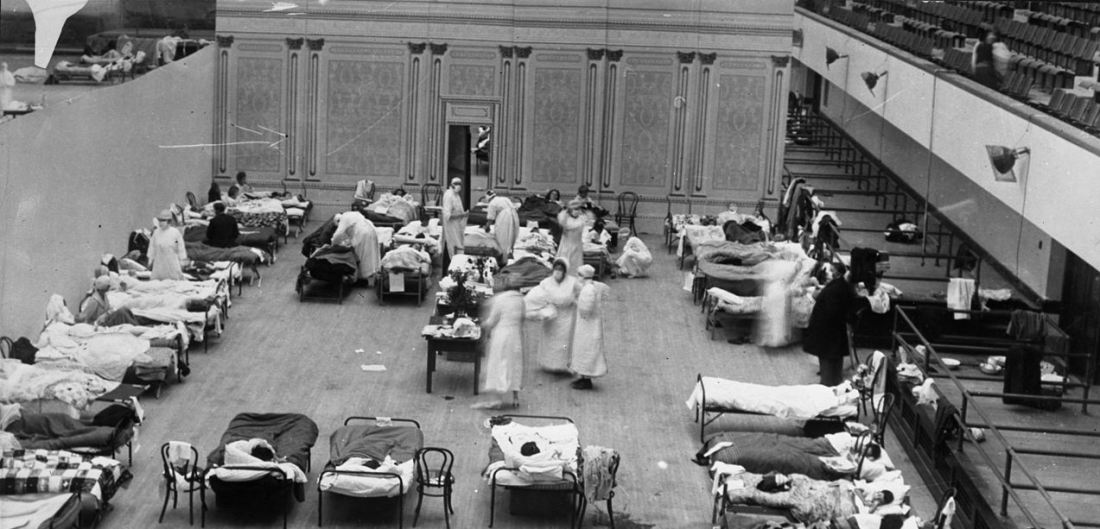

 November 11th, 1918. The Armistice is signed between the defeated Germany and the victorious Allied Powers (minus Russia, of course – the latter lost its war with the Central powers).
November 11th, 1918. The Armistice is signed between the defeated Germany and the victorious Allied Powers (minus Russia, of course – the latter lost its war with the Central powers).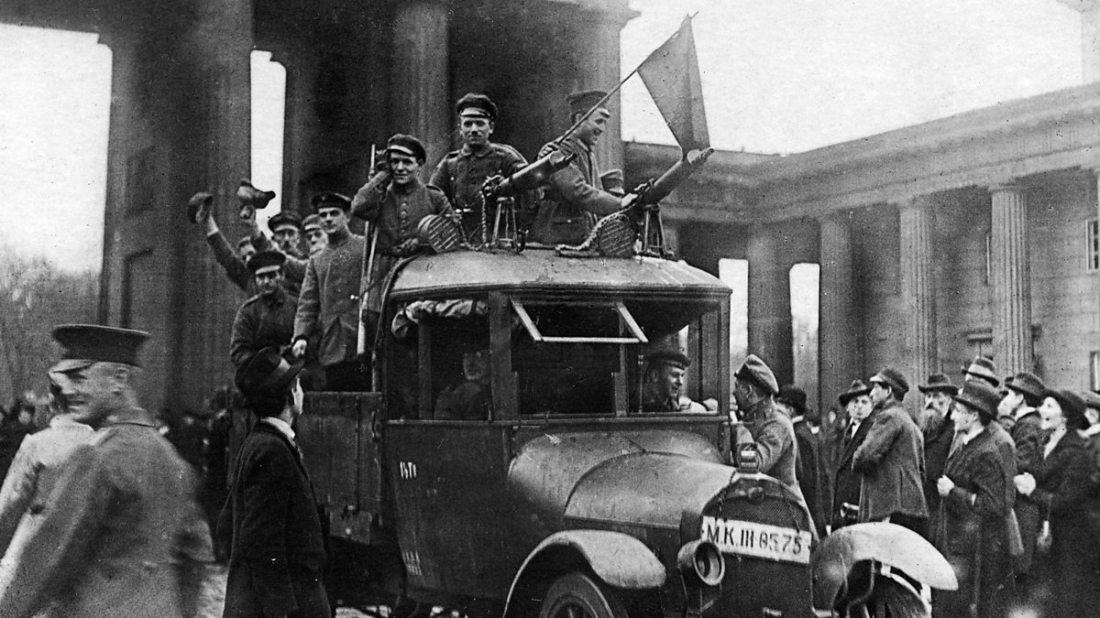
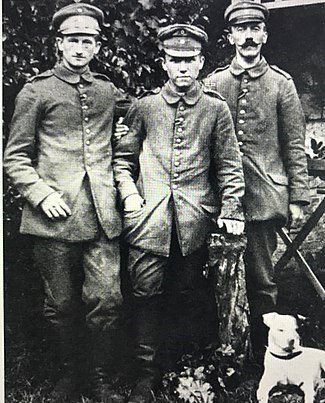 July 17th, 1918. The deposed Russian Emperor Nicholas II is murdered by the Bolsheviks – with his family and servants. The order to kill the Tzar and his family came directly from the Bolshevist leader Vladimir Lenin – it was a revenge (cut and dry, plain and simple) for the execution of Lenin’s elder brother Alexander Ul’yanov thirty years earlier.
July 17th, 1918. The deposed Russian Emperor Nicholas II is murdered by the Bolsheviks – with his family and servants. The order to kill the Tzar and his family came directly from the Bolshevist leader Vladimir Lenin – it was a revenge (cut and dry, plain and simple) for the execution of Lenin’s elder brother Alexander Ul’yanov thirty years earlier.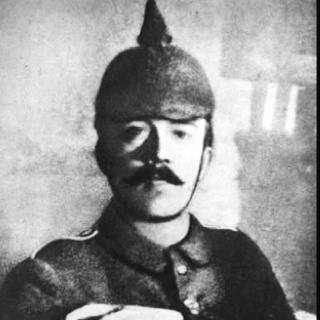 September 1914. The British Navy establishes the Blockade of Germany. Its objective was (obviously) an effort to restrict the maritime supply of goods to the Central Powers (Germany, Austria-Hungary and the Ottoman Empire).
September 1914. The British Navy establishes the Blockade of Germany. Its objective was (obviously) an effort to restrict the maritime supply of goods to the Central Powers (Germany, Austria-Hungary and the Ottoman Empire). June 28th, 1914. Archduke Franz Ferdinand of Austria, heir presumptive to the Austro-Hungarian throne, and Franz Ferdinand’s wife Sophie, Duchess of Hohenberg, are assassinated in Sarajevo.
June 28th, 1914. Archduke Franz Ferdinand of Austria, heir presumptive to the Austro-Hungarian throne, and Franz Ferdinand’s wife Sophie, Duchess of Hohenberg, are assassinated in Sarajevo.